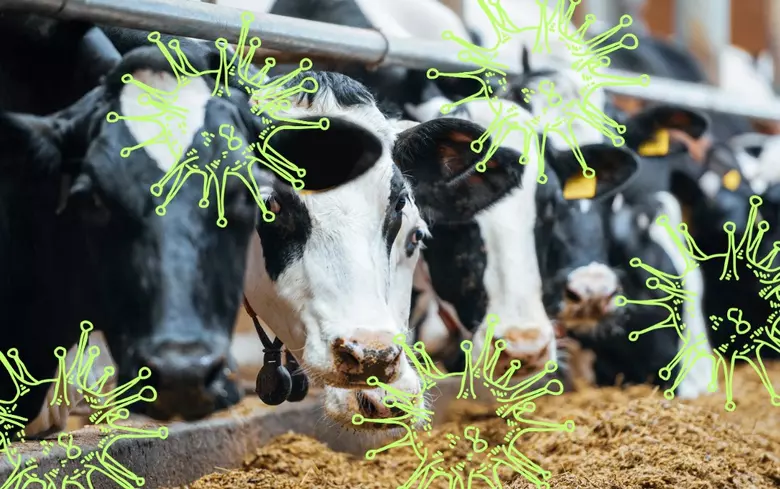28/03/2024
28/03/2024

NEW YORK, March 28: In a surprising turn of events, a "mysterious" ailment afflicting cows in the United States, characterized by thick and discolored dairy milk, has been identified as the first confirmed outbreak of bird flu among cattle.
The US Department of Agriculture issued an official statement revealing that cows at four dairy farms in Texas and Kansas tested positive for highly pathogenic avian influenza (HPAI). Additional cases have been reported in New Mexico, although specific details regarding the number of affected farms and cows remain undisclosed.
Researchers investigating the outbreak made a startling discovery: traces of the influenza virus were detected in unpasteurized cow milk. Fortunately, officials reassured the public that such abnormal milk would never reach consumer markets, as pasteurization effectively eliminates any viral presence.
Describing the contaminated milk as "syrupy and thick," Jim Lowe, a veterinarian and influenza researcher at the University of Illinois at Urbana-Champaign, emphasized the protective role of pasteurization against potential health risks.
This rare occurrence comes over a decade after initial laboratory experiments confirmed cattle's susceptibility to bird flu, a hypothesis previously debated among experts. Following the 1997 H5N1 outbreak in Asia, which affected various animal species and humans, questions arose regarding the virus's potential transmission to ruminant farm animals like cows.
While historical evidence suggested the possibility of interspecies transmission, concrete proof remained elusive until now. The current outbreak, affecting approximately four dairy farms, is unprecedented in its manifestation within the cattle population.
Although the virus has led to a noticeable decline in milk production, ranging from 10 to 40 percent per affected herd, few cows have succumbed to the infection thus far. The Texas Department of Agriculture assures the public that there is no threat to food supplies, as contaminated milk has been discarded and pasteurization effectively neutralizes any viral presence.
Efforts are underway to sequence the virus's genome to trace its origin and transmission pathway. Concurrently, a separate incident in Minnesota has seen a small number of goats test positive for H5N1, marking the first documented case of bird flu in domestic ruminants in the US.
State veterinarian Brian Hoefs emphasized the importance of vigilance amid ongoing research, reassuring the public that mammals are unlikely to further propagate the virus. With over 200 cases of HPAI recorded in mammals since 2022, including diverse species such as foxes, raccoons, and seals, authorities remain committed to supporting the dairy industry and ensuring the welfare of affected animals.


